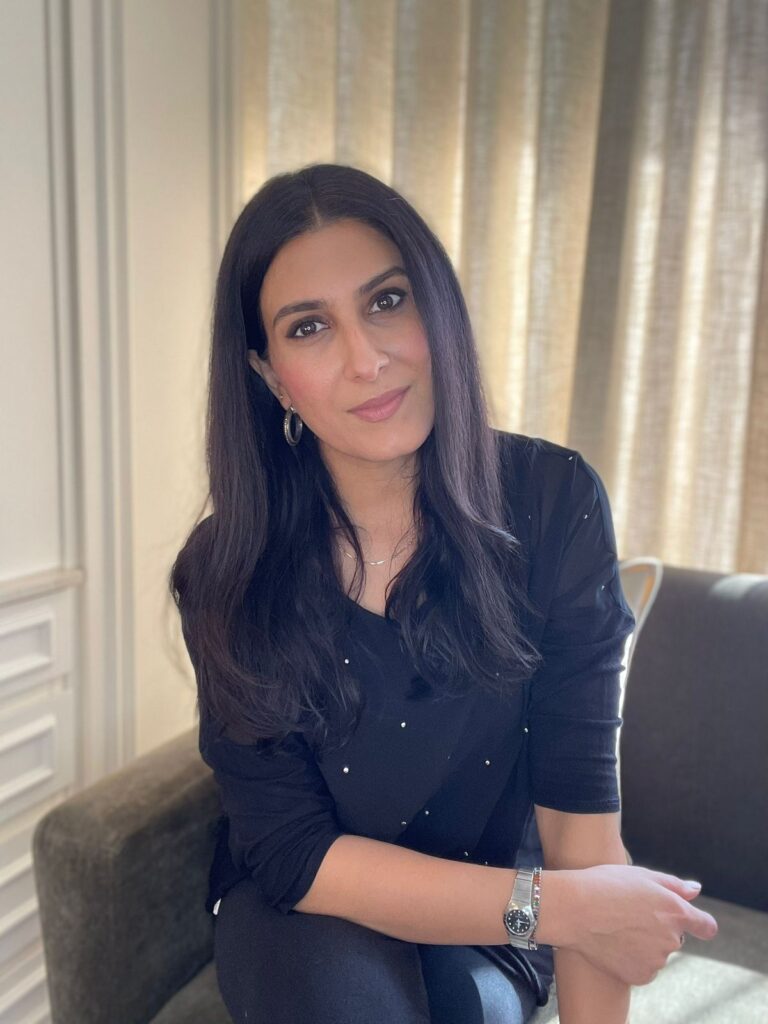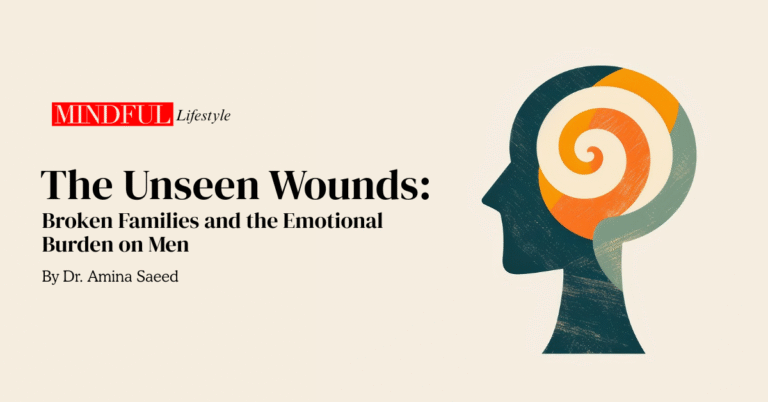By Dr. Amina Saeed
Some wounds aren’t visible—and in the conservative, family-centered fabric of Pakistani society, “kionke dikhta nahin hai”(because it’s unseen), they often aren’t given the weight they deserve. When a family foundation cracks through divorce, separation, or toxic parental relationships, the psychological consequences run deep—especially for boys, who can grow up emotionally stunted or conflicted. Yet these effects remain largely unspoken, hidden beneath cultural stigmas around mental health and masculinity.

Children absorb positivity and negativity in a deeply organic way—young minds take in far more than we often realize. No parent wishes to pass their pain to future generations, yet trauma can quietly and unintentionally find its way in. Childhood is a delicate phase where the absence of stable parental bonds can disrupt emotional growth, leading to struggles with trust, self-worth, and identity. Unresolved feelings of abandonment, guilt, or anger can settle deep within, surfacing in different ways throughout life. Just because men don’t show their pain doesn’t mean they don’t feel it.
Our societal norms discourage emotional expression in men. This repression can lead to depression, anxiety, substance abuse, and even aggression or dysfunctional relationships. The pain of a fractured childhood often echoes into adulthood, shaping how they love, parent, and view themselves.
Understanding the hidden impact of broken families on boys in our society is crucial. Let’s take a closer look at some important factors.
1. Emotional Neglect and Suppression
It’s no secret that Pakistani boys growing up in broken homes often experience emotional neglect. Fathers may be absent or emotionally distant, while mothers—overwhelmed by survival pressures or societal judgment—may struggle to provide consistent emotional support. These boys quickly learn that showing pain is seen as weakness. From a young age, the culture reinforces the belief that “mard ko dard nahi hota” (men don’t feel pain).
2. Trust and Attachment Issues
Witnessing conflict, infidelity, abandonment, or manipulation between parents often distorts a boy’s understanding of relationships. Some become overly guarded, afraid to trust, while others grow excessively dependent, seeking validation through unhealthy attachments.
In their own marriages, these men may become controlling, emotionally distant, or overly anxious. Many struggle to be present partners and fathers because they never had a healthy role model to learn from.
3. Masculinity and Social Pressure
In most societies, men are expected to be providers, protectors, and pillars of strength. If a man is unable to fulfill this role for any reason, he is often labeled “kamzor” (weak).
Rarely does society ask why he behaves this way or why he struggles to provide. This lack of understanding leads many men to overcompensate—through aggression, false confidence, or material success—in an attempt to hide their inner wounds.
There’s a deep stigma around men who struggle mentally and emotionally. This creates a dangerous silence, one that only deepens their psychological pain.
4. Cycle of Dysfunction
Without self-awareness or healing, this trauma often carries forward unconsciously. Men may unknowingly recreate the same dysfunction they once experienced—expressed through anger, broken marriages, or emotional distance from their own children. The cycle continues, leaving another generation to grow up in emotional poverty.
5. Path to Healing
Despite these challenges, healing is possible. The first step is awareness—recognizing that growing up in a broken family is not a personal failure, but an experience that shaped one’s behavior. The next step is seeking support—whether through therapy, community groups, or trusted mentors.
Men from broken families in Pakistan often carry invisible scars—scars that itch, ache, and bleed for years. While society expects strength from them, it fails to understand their silence. To raise emotionally healthy men, we must first create space for their pain, encourage healing, and break the generational cycle of emotional neglect.



